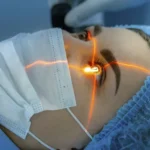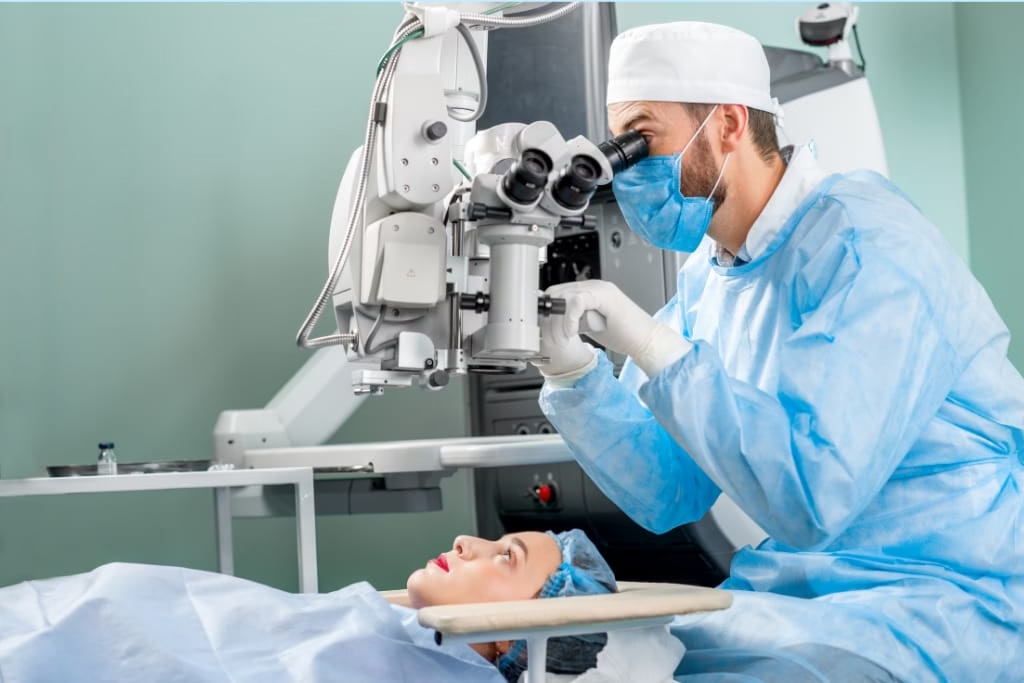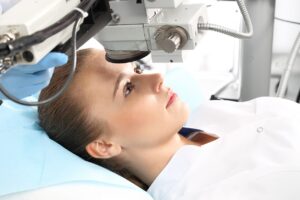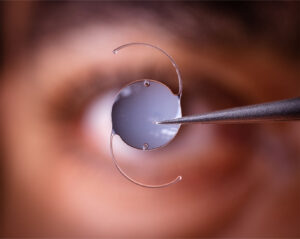Introduction:
Cataracts are one of the most common causes of vision loss worldwide, especially in older adults. The good news is that cataract eye surgery is a safe and effective solution that restores clear vision for millions of people every year. But how exactly does vision improve after the procedure? Let’s explore what happens to your eyesight after surgery, the types of cataract surgery available and what you can expect during recovery.
What Happens to Your Vision After Cataract Eye Surgery?
During cataract eye surgery, the cloudy lens of your eye is removed and replaced with a clear, artificial intraocular lens (IOL). This new lens restores light passage into the retina, allowing you to see clearly again.
Patients often report improvements such as:
- Sharper vision – objects appear clearer and brighter.
- Better color perception – colors look more vivid since the cloudiness is gone.
- Improved night vision – halos and glare are reduced, making driving safer.
- Reduced dependence on glasses – many people need little or no correction after surgery, depending on the lens chosen.
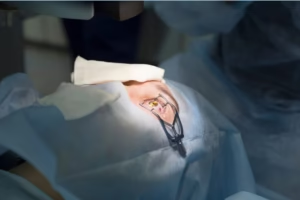
What Are the 3 Types of Cataract Eye Surgery?
There are three main surgical techniques used today:
- Phacoemulsification (Phaco Surgery)
- The most common method. A small incision is made, and an ultrasonic probe breaks up the cloudy lens before replacing it with an artificial lens.
- Extracapsular Cataract Extraction (ECCE)
- Used for advanced cataracts. A larger incision is made to remove the cloudy lens in one piece, followed by IOL implantation.
- Laser-Assisted Cataract Surgery
- A more advanced technique where a laser is used to make precise incisions and soften the lens, making removal easier.
Your doctor will recommend the best type depending on your eye condition.
Is Cataract Eye Surgery Painful?
One of the most common concerns patients have Is cataract eye surgery painful? The answer is no. The procedure is performed under local anesthesia, so you won’t feel pain. You may experience mild pressure during surgery and some discomfort for a few days afterward, but it is usually managed easily with prescribed eye drops and medications.
Cost of Cataract Eye Surgery:
The cost of cataract surgery can vary depending on:
- The type of surgery traditional vs. laser-assisted
- The intraocular lens chosen (monofocal, multifocal, toric, etc.)
- Geographic location (searching for cataract surgery near me will show local pricing)
- Whether the surgery is covered by insurance
On average, cataract surgery costs between $2,000 to $5,000 per eye in many countries. Insurance or government health plans may cover part or all of the expenses if it is deemed medically necessary.
Recovery and Vision Results:
- First 24 hours – Vision is slightly blurry as the eye adjusts.
- 1 week – Most patients notice a big improvement in clarity.
- 1 month – Vision stabilizes and you can return to most normal activities.
- Long term – Improved quality of life, sharper eyesight, and brighter colors.
Many patients describe the results as life-changing.
Frequently Asked Questions About Cataract Surgery
Q1. How long does cataract surgery take?
The procedure usually takes about 15 to 30 minutes per eye.
Q2. Can both eyes be done at the same time?
Typically, each eye is operated on separately, usually a few weeks apart.
Q3. How soon can I drive after cataract surgery?
Most people can drive again within 24 to 48 hours if vision meets safety standards.
Q4. What restrictions do I have after surgery?
Avoid heavy lifting, swimming and rubbing your eyes for at least 1 to 2 weeks.
Q5. Do cataracts come back after surgery?
Cataracts cannot return, but sometimes a cloudy membrane forms behind the lens implant posterior capsule opacification. It can be fixed easily with a quick laser treatment.
Q6. Can cataract eye surgery correct astigmatism?
Yes, with special toric lenses.
Q7. How do I choose the right lens implant?
Your ophthalmologist will recommend a lens based on your lifestyle, budget, and eye condition.
Q8. Is laser cataract surgery better than traditional?
Both are effective, but laser offers more precision and faster recovery for some patients.
Q9. What happens if cataracts are left untreated?
Vision will gradually worsen, leading to blindness in severe cases.
Q10. How do I find the best cataract surgeon near me?
Search for cataract surgery near me, check reviews, and consult board-certified ophthalmologists with experience in advanced surgical techniques.
Conclusion:
Cataract eye surgery is one of the most effective and safest medical procedures available today. It restores clear vision, reduces dependency on glasses, and dramatically improves quality of life. Whether you’re wondering Is cataract surgery painful? exploring what are the 3 types of cataract surgery, or searching for cataract surgery near me to compare the cost of cataract surgery, the outcome is almost always life-changing.
If you are experiencing cloudy vision, glare or difficulty with daily activities, consult an eye specialist to discuss whether cataract surgery is right for you. Clearer, brighter vision may only be a procedure away.





